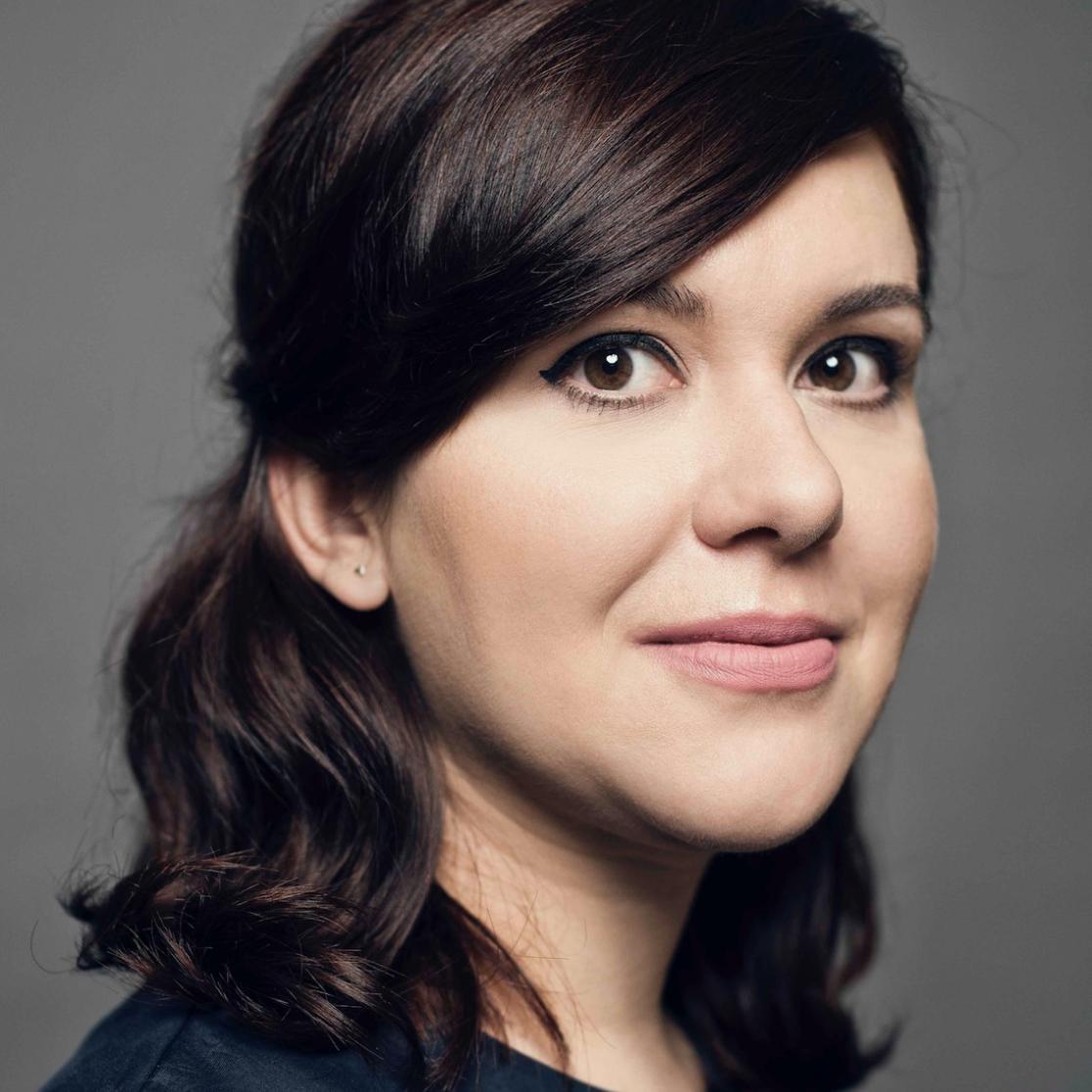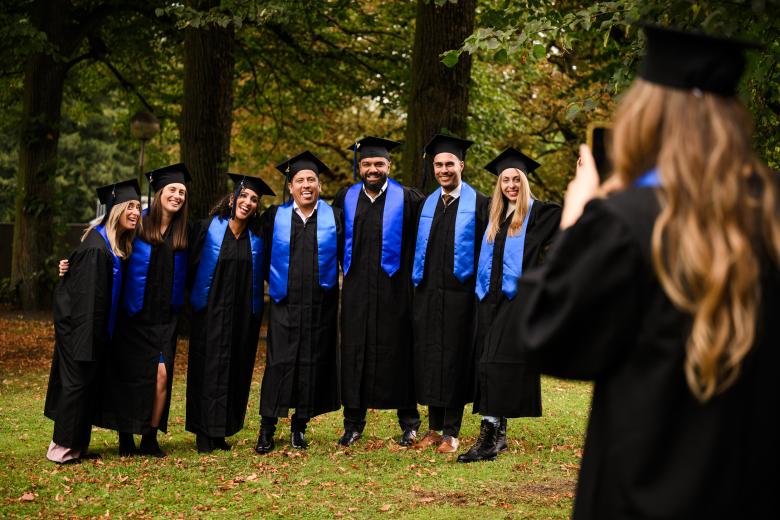Word of mouth on steroids
“Influencer marketing is basically word of mouth on steroids. You have your relatable ‘friend’ from YouTube, Instagram or Tiktok telling you: ‘this product is great – you should try it!’” Catalina Goanta, who researches the jurisdiction around social media personalities, pauses, then laughs: “I have definitely bought things because of influencer marketing on social media …”
“The interactions in the triangle of user, platform and state have thrown up some really interesting legal questions. Is it public or private if users communicate their opinions? Is that speech covered by fundamental rights such as freedom of speech?” Answering those questions well and acting accordingly is one of the big challenges of today.
The second wave of the internet has been characterised by intermediary businesses. Those are for examples platforms like Airbnb or Uber taking commissions for bringing together peers – one providing, one consuming a service. “That raises a lot of questions: are Uber drivers employees? Are Airbnb hosts real estate agents? There’s been lots of research and discussion, but no good answers.”
Profit without obligations
Someone letting their apartment in Maastricht while they’re on holiday should probably not have the same obligations as a hotel. An Airbnb host with a portfolio of properties across Paris let all year round might be a different matter. “How much do you have to sell online to be seen as a professional trader? The answer matters because it affects your responsibilities with regards to consumer protection”
Goanta thinks we have largely failed to create satisfactory reforms to create a framework focussing on freelancers. “What is their legal status? What do they have to disclose? What protections do they enjoy? What about social security, health insurance, and so forth? All of these unresolved questions have now been transposed into the realm of social media.”
The common conceptualisation of and legal approach to social media is ignoring the prevalent trend of monetising access to consumers’ attention. “Any private person can start a YouTube or TikTok account and produce content. Once they exceed a certain reach, they can monetise the content – at that point, we speak of content creators or influencers.”
Going viral – in the pre-corona sense of the phrase
Once someone has accrued a vast followership and the consequent commercial endorsements, things get legally murky. “Depending on how much money you make, you might have to declare your income and change legal status – but it’s not transparent for consumers who’s registered as a freelancer, or who has a company and where it is registered.”
Much as social media companies might invoke an idyll of open, peer-to-peer communication, it probably crosses the line to professional entertainment when you sell access to 1 million viewers as you lick major infrastructure whilst wearing a balaclava or 1 billion viewers as your child delights in plastic eggs. The latter refers to Ryan’s World, which started out with videos of a child reviewing toys – rather favourably.
“It’s an 8-year-old who is being filmed – the product then makes money: that is labour.” The use of child actors in entertainment is strictly regulated. Those frameworks, however, don’t apply to private persons and would be impossible to enforce since it’s not limited to a few studios – any ambitious parent can give it a go. That is not to discount the ambition of the children in question.
Legislative baby steps
“Children used to want to become firefighters, astronauts or doctors – but now surveys show that many of them want to become influencers because they see those people becoming incredibly rich and famous by filming YouTube videos.” Influencers, essentially the winners of a new iteration of the gig economy, change the way people relate to social media.
Bruno Studer, a member of the French National Assembly drafted a change to the labour code including hefty fines for parents not getting specific authorisation for children involved in economic activities online. “That is very encouraging. It is vital that policymakers have a certain amount of digital literacy and an understanding of the business models involved.”
Legislation is different across Europe and but in general there is an obligation to disclose the transactional nature of a post, i.e. if, rather than incidental ads, a post is specifically sponsored by a brand that wants access to the followers. “If you think an influencer is a peer, she doesn’t have that obligation; if you think her a trader, she does.”
Excessively lean legal regime
Where do we draw the line? “Currently, it’s up to influencers themselves since none of the current legal regimes apply to them specifically. In the Netherlands, both Uber drivers and influencers are freelancers – but the latter might be earning millions. The state could create specific tax registrations for those earning money with digital content on social media or a threshold when they have to register as a company.”
Even if a given jurisdiction establishes influencers’ legal or commercial status, there remains the question of to enforce the concomitant obligations. “According to EU law, influencers have the duty to disclose their commercial interest - but how would authorities know?” At DKE and Studio Europa, Goanta and her colleagues research computational methods like natural language processing to detect advertising language on Instagram.
Then there is the concept of political speech, which complicates things even further: “The Charter of Fundamental Rights protects freedom of expression – and the state has to support that right. Social media platforms however, don’t have to protect it and can moderate posted content – although they usually try not to.”
Free speech – with receipt
That’s where influencers can be useful. “Michael Bloomberg paid accounts to post memes in support of his presidential campaign. Although it’s political speech, we’d argue that, because of the transactional nature of the contract between his campaign and the meme accounts, consumer protection applies. There’s commercial intent and we have laws that protect consumers from manipulative practices.”
Goanta quotes research that shows that misinformation surrounding the 2020 American election has been mostly driven by influencers, not foreign interference. “People with podcasts and YouTube channels, who enjoy credibility with the millions of people they reach, can amplify specific narratives, such as voter fraud.” Whether a sincere belief, a calculated move to build their brand, or the result of a financial transaction, there are no sufficient legal frameworks or mechanisms of accountability. Goanta and her colleagues have a fascinating and important challenge on their hands.
Text: Florian Raith

Catalina Goanta is assistant professor of Private Law and a postdoctoral researcher at UM’s Studio Europa. Her research interests include digital monitoring tools for consumer protection and content/web monetisation and social media governance.
Also read
-
Maastricht University recognised among top institutions in CEO Magazine’s 2025 Green MBA Rankings
We are proud to share that Maastricht University School of Business and Economics has been recognised as a top-ranked institution in the CEO Magazine 2025 Green MBA Rankings.

-
Pamela Habibović joins Executive Board Universities of the Netherlands
As of 1 July 2025, Pamela Habibović, UM’s Rector Magnificus, will join the Executive Board of Universities of the Netherlands (UNL).

-
ITEM continues: Advancing cross-border cooperation and impact
ITEM enters new phase within UM Faculty of Law from 2025.
